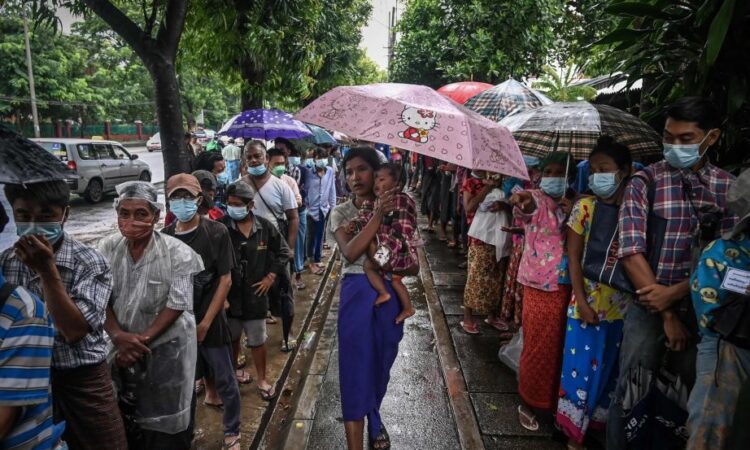
Myanmar is grappling with severe economic strain as the rapid
depreciation of its currency, the kyat, exacerbates the cost of
essentials like food and medicine, Azernews
reports citing Reuters.
The currency’s volatility has reached alarming levels, with the
kyat plunging to a record low of 7,500 to the dollar in the black
market last week, down from 5,000 earlier in the month. This
drastic drop follows reports that the Myanmar junta has been
printing additional kyat in an attempt to stabilize the currency,
according to foreign exchange traders.
“People are frantically buying Thai baht and selling kyat,” said
a money transfer agent in neighboring Thailand, who requested
anonymity. “The only sellers of baht are those sending money back
to Myanmar from Thailand.”
Although the kyat has slightly rebounded to around 6,000 to the
dollar in the black market, with the central bank’s official
reference rate at 2,100 and an online market rate of 3,400, the
prices of essentials remain elevated. Residents report that the
costs of medicine and groceries have surged in Myanmar’s major
cities due to the currency’s instability, increased transportation
costs, and disruptions in border trade.
One resident from Naypyitaw, Myanmar’s capital, noted, “Our
weekly grocery bill used to be about 25,000 kyat ($11.94) a month
ago, but it has now risen to around 40,000 kyat.”
The junta’s inability to manage the economy effectively is
compounded by ongoing violence and instability following the 2021
military coup, which ousted the democratically elected government.
This has led to a significant investor exodus, Western sanctions,
and a nationwide armed rebellion. The junta’s loss of control over
crucial areas, including key trade routes with China and Thailand,
has further deepened the country’s economic crisis.

